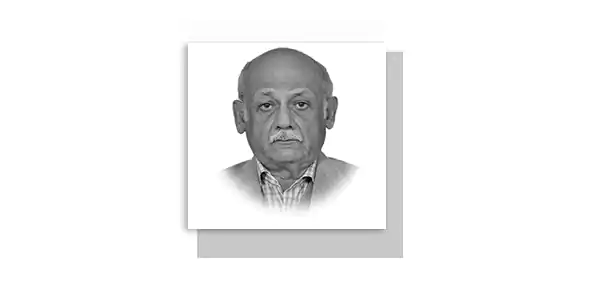Defining moment in constitutional, political history
April 4th 2023 was a historic day and a defining moment in the constitutional and political history of Pakistan. Ironically 4th April 1979 is a date that will live in infamy in the national history as on this very day the first elected Prime Minister Z.A. Bhutto was hanged to death in the central jail in Rawalpindi and the act was called a “Judicial Murder” by world renowned jurists and legal experts. As predicted the three member bench of the Supreme Court headed by the Chief Justice Umar Ata Bundial gave a verdict that the decision of the Election Commission to delay the elections to the provincial assembly in the Punjab was unconstitutional and directed the ECP to hold elections on the 14th of May. The court ordered the Federal Govt. to arrange for the required finances and to provide security staff for elections. The judgment of Supreme Court has thrown another spanner in the raging fires of political polarization. This has come as a huge blow to the ruling PDM coalition and the PTI has cause for celebration because the decision has vindicated their stance on the issue. In a bitter rejoinder the Govt. of Shehbaz Sharif has openly challenged the validity of the decision by the three member bench and has repeated its demand that this case should have been heard by a full bench of the Supreme Court, and the interior minister has reiterated that this verdict will aggravate the current political and constitutional crisis in the country. The ruling coalition is on a defiant path. It has made it clear that it won’t comply with the court’s order that it describes as ‘minority’ and ‘partisan’. Some ministers have not even ruled out the possibility of declaring a state of emergency.
In case of defiance by the Federal Govt. it will be a declaration of war between the superior judiciary and the Federal Govt. and such open confrontation between two major pillars of the state will be nothing short of a major disaster for the country. Defying the orders of the Supreme Court will deepen the political and constitutional crisis and increase the horrible chances of total collapse of the political system in the country. The aggravated political crisis will invite the incursion of powerful military establishment and in spite of the claims of neutrality the armed forces are never out of the political game. Indications are that the military establishment is not in favor of early or scattered elections and they have made it clear that they will not be available for elections duty due to the delicate security conditions. Any form of noncompliance of the court orders will result in the matters spinning out of control of the politicians and the judiciary and the army will have to be directly involved in any emergency resulting in another unfortunate disaster for the country and the democratic structure.
The political elite of the country have been at loggerheads since the last few years and are now at a dead end, so the battle ground became the Supreme Court and it was not possible for the Supreme Court to avoid the stigma of taking sides when it took up the petition of elections in Punjab and KPK. The court was clearly divided like never before in history on the subject of Sou Motu action taken by the CJP setting an election date for the two dissolved assemblies. The bench formed of nine members was reduced to five then four and then only three and apparently the bench that heard the petition increased and intensified the deep divisions within the Supreme Court. The Supreme Court is definitely split down the middle.
The court is in desperate need to maintain and preserve its respect and sanctity in the eyes of the people of Pakistan. It has been clearly seen that many of the 15 judges of the court have some serious reservations about the powers of the Chief Justice and these powers are also being challenged by the ruling coalition of the PDM. The dissenting judges have demanded that the dictatorial powers of the CJP to constitute benches should be curtailed and this conflict and open dissent by so many judges has taken a serious and ominous turn when it has been aired so openly.
Jurists and law experts are of the opinion that dictatorial powers given to the CJP puts a question mark on the impartiality of the judicial system and makes judicial reform imperative and need of the hour. The recent move to change the rules by an act of Parliament gives rise to suspicion that the ruling Govt. is trying to exploit the division and conflict in the superior judiciary to fulfill its own political ambitions and many experts believe that the change in rules is the responsibility of the Supreme Court only. Conflict within the major organs of the state will further erode and diminish the writ of the state. Pakistan is already on the brink of an economic collapse and any further crises will very likely destroy an already fragile structure of the state.
—The writer is Professor of History, based in Islamabad.
Email: [email protected]










